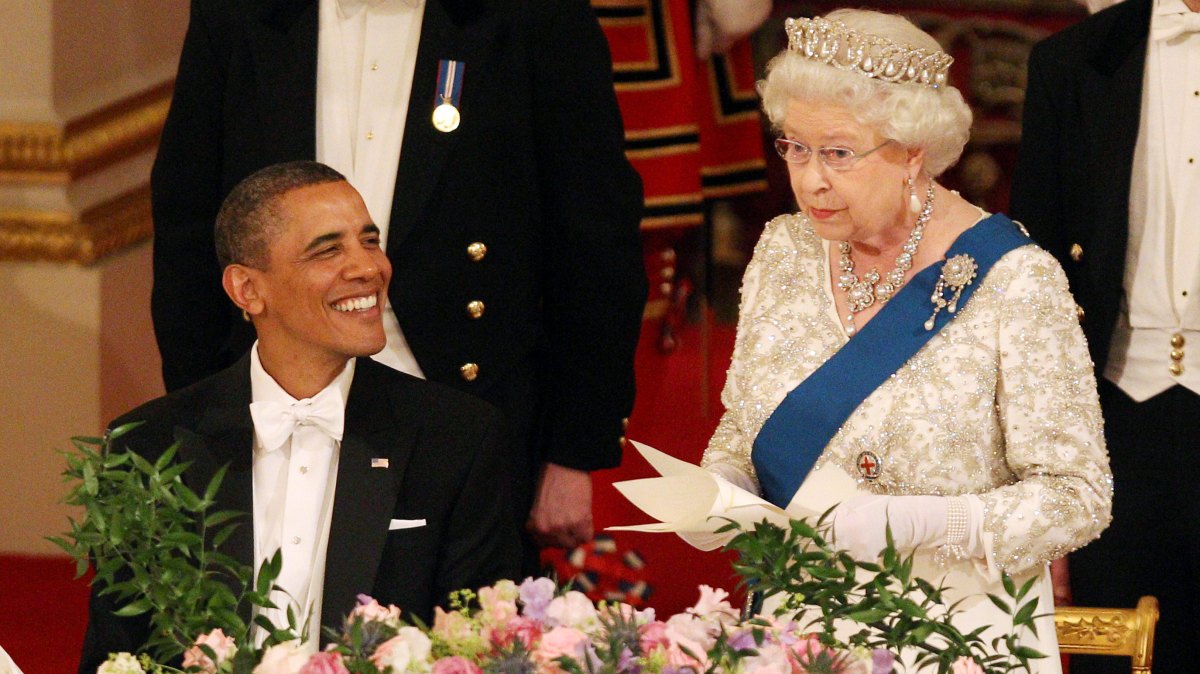Queen Elizabeth II had opinions on all sorts of subjects; it was just that she chose not to share them. Or, more accurately, she did sometimes share them, but those who heard were usually too discreet to repeat them. As George Osborne says, “I was constantly astonished by how candid she was and that none of this ever came out. She’d be very forthright in telling you what she thought of individuals, including members of her own family, and what she thought about things going on in the country.”
Another politician tells how the Queen once mentioned over drinks that she was due to see Pakistan’s General Musharraf, who would later be found guilty of violating the country’s constitution and sentenced to death in absentia. “Isn’t he just a crook?” she said. “Isn’t he just completely corrupt?” The group she was talking to were lost for words at this, so one of them turned the conversation to horse racing and asked whether she watched the Channel 4 preview programme The Morning Line. She said,“I really like the Channel 4 coverage in the afternoon, and I always like to watch it when my horses are running, but The Morning Line? I can’t watch it. I can’t stand that man John McCririck.”
On one occasion the Queen did share her views, only to see them on the front page of The Sun a few years later. During the referendum campaign over whether Britain should leave the European Union, the paper published a front-page story under the headline “Queen Backs Brexit”. The article said that at a lunch at Windsor in 2011 the Queen had told the deputy prime minister, Nick Clegg, that she thought the EU was heading in the wrong direction. She allegedly said, with “venom and emotion”, “I don’t understand Europe.”
Clegg later denied this was true, accusing Michael Gove of leaking the story.
Was the Queen really a Brexit supporter? Although Buckingham Palace complained to IPSO, it did not issue a strong denial of the story. There was a good reason for this: it was understood that to officially deny that the Queen backed Brexit would imply that she was a Remainer. (The Queen, of course, cannot vote, because she is above politics. In theory, other members of the royal family can, but in practice they do not.)
Now, years after that headline, evidence of what the Queen really thought about Brexit can be revealed. A senior minister who spoke to her in the early spring of 2016, three months before the referendum, recalls that she said, “We shouldn’t leave the EU.” They discussed the referendum, and she said, “It’s better to stick with the devil you know.”
This chimes with what a palace insider says of the late Queen’s views on Europe. Although she would read stories in the papers about Brussels bureaucracy and say, “This is ridiculous,” on a fundamental level she saw the EU as part of the postwar settlement, marking an era of co-operation after two world wars. As David Cameron put it, “She was so careful never to express a political view, but you always sensed that, like most of her subjects, she thought that European co-operation was necessary and important, but the institutions of the EU sometimes can be infuriating.”
News of the Queen’s views on Brexit reached Cameron, who immediately had to decide whether to use it in the Remain campaign. He chose not to, even though the Leave camp had no such scruples. But it is now clear: if the Queen had had a vote, she would have voted Remain.
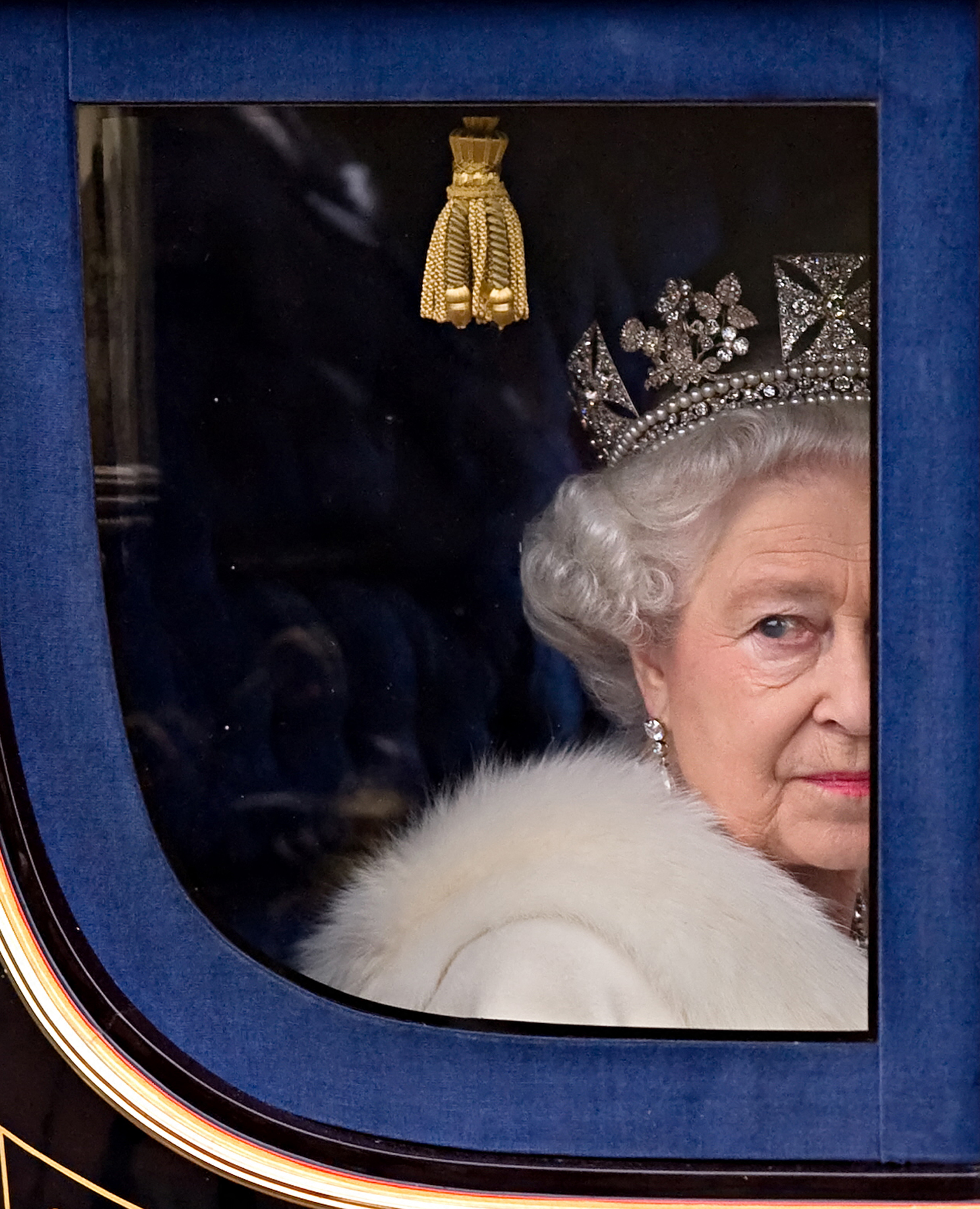
The Queen returning to Buckingham Palace after the State Opening of Parliament, November 2009
AFP
How the Palace refused to back down with the Treasury over money
Before the 2010 election Sir Alan Reid, keeper of the privy purse — the official in charge of the sovereign’s money — began talks with the prime minister, Gordon Brown, and chancellor, Alistair Darling, about reforming the system for financing the monarchy, with the aim of making it easier for the Palace to plan ahead and also giving it more flexibility about how to spend the money. But nothing had happened. George Osborne — Darling’s successor as chancellor — recalls, “I had a good relationship with Alistair Darling. He said, ‘There is a problem on the royal finances that — with everything else going on — we just hadn’t got round to fixing. So, I’m sorry, it’s over to you.’”
Osborne’s proposal was to grant the sovereign a sum equivalent to a fixed proportion — 15 per cent initially — of the profits of the Crown Estate, to be known as the sovereign grant. Osborne said, “If the country is doing well and the economy is doing well, the Crown Estate income goes up. If the country is in recession, it goes down.” But no matter what happened to Crown Estate profits, the sovereign grant would not go down. As the Financial Times put it, “When the Crown Estate does win, royals win; when it does not, taxpayers lose… The perverse incentives in this system are nothing short of frightening.”
Osborne spoke to the Queen a couple of times about how it would all work. “She was across the detail,” he says. “She was interested in the finances, in how the money was allocated, and she was surprisingly candid, given I didn’t know her, about how she thought members of her family would be looking after their money. I remember sitting there and her saying, ‘Well, he’s no good with money.’ ”
• King Charles’ Crown Estate enjoys bumper windfarm profits
In the event, inflation was lower than expected, and the Crown Estate did better than expected. David Cameron has since admitted that it was a generous deal. What has not been revealed before, however, is that the government knew that it was a generous deal. And when they tried to adjust it, the Palace refused to budge. Lord Macpherson, the permanent secretary to the Treasury at the time, says he was aware of “and slightly nervous about” the flaws in Osborne’s plan. “The Crown Estate has been rather successful in the modern era. It is no longer run as a sleepy civil service backwater, but as an efficient property company.” It was also starting to do well out of wind energy, as it owns the shoreline. “My worry was that whatever formula you chose, it would grow year by year in real terms… At the last moment, both [Osborne] and I thought, ‘This is just getting a bit too generous. Can we just pare back the percentage a bit?’
“I was deputed to ring up Alan Reid and say, ‘This is all a bit generous. We think you probably need a lower formula.’ At that point, Alan Reid played hardball and said, ‘Look, Her Majesty has agreed to it.’ ” Meanwhile, the budget was coming up and Osborne was due to have an audience with the Queen the night before. “Alan Reid said, ‘If George Osborne wishes to raise it with Her Majesty, then he is welcome to do so.’ I think Osborne had rather bigger things on his mind, and in the end he decided not to.”
The deal that was announced “came in for remarkably little criticism”, says Macpherson. “The Treasury official in me thought we might have erred on the side of generosity. And that is still my view.”
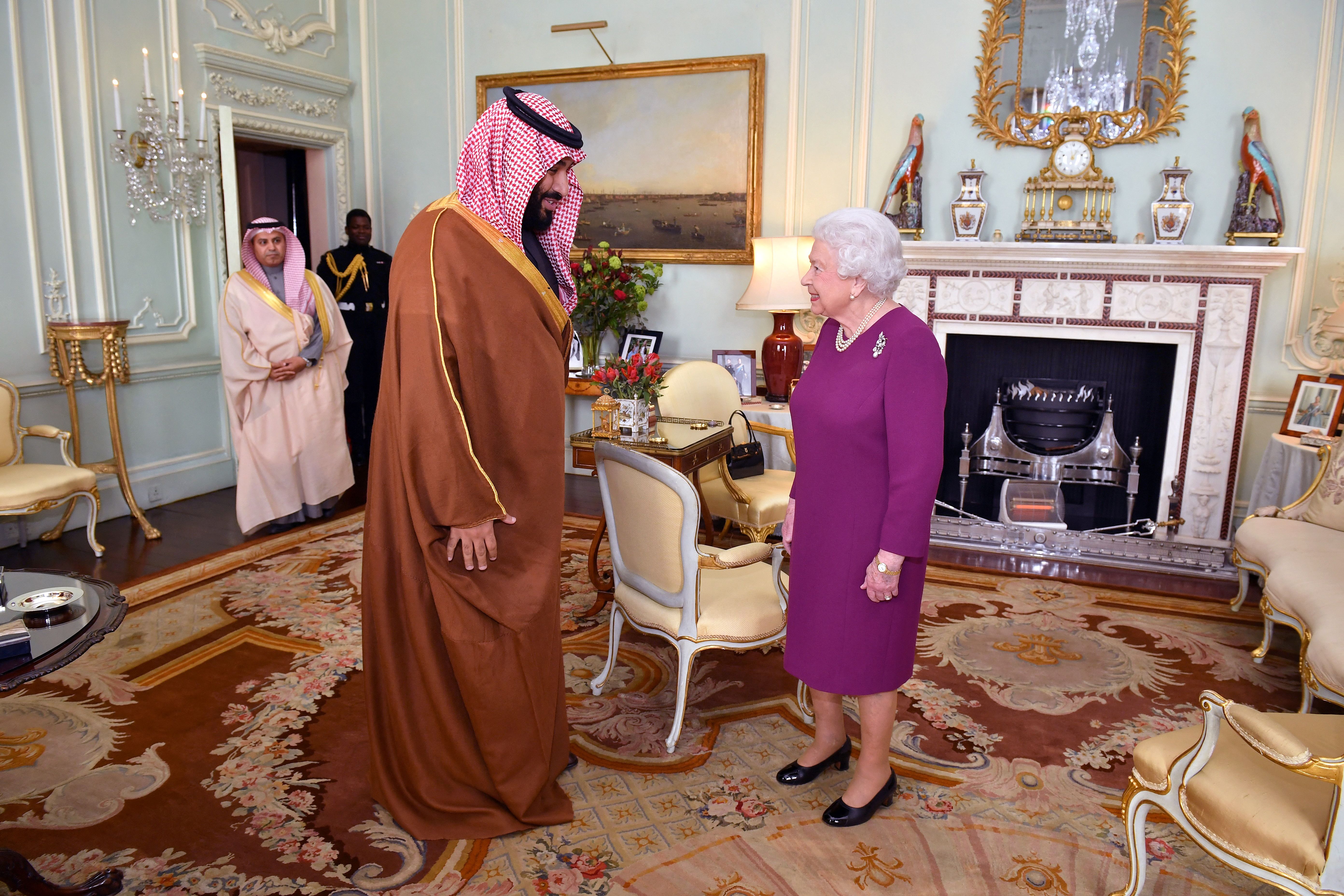
The Queen with Crown Prince Mohammed bin Salman, 2018
AFP
When Mohammed bin Salman met the Queen
The Queen could have a powerful effect on world leaders. When Saudi Arabia’s Crown Prince Mohammed bin Salman visited Britain in 2018, the government pushed the boat out, including arranging a meeting with the cabinet in the cabinet room. “But the whisper came back that he was a bit disappointed because there was no meeting with Her Majesty,” said Lord McDonald, at the time head of the Foreign Office. “And so, very quickly, with Her Majesty responding with alacrity, a lunch was arranged at Buckingham Palace. That, of course, was the highlight of the visit. The prince was visibly affected, almost trembling meeting the Queen of England. One reason I knew he was under pressure was that in that meeting he spoke only Arabic. He speaks perfectly good English, but it’s not perfect English. But meeting the Queen he had to get it all right, so he spoke Arabic and relied on an interpreter.”

Boris Johnson on the phone to the Queen for her weekly audience during the pandemic, March 2020
GETTY IMAGES
How Boris Johnson almost gave the Queen Covid
Downing Street, March 18, 2020 — two days after Boris Johnson made his first Covid statement asking people to stop non-essential contact with others. In the late afternoon, he instructs his private secretary, Martin Reynolds, to get the prime ministerial car ready for his weekly audience with the Queen. However, Johnson has a cough, and Reynolds and others are worried that he might have Covid and if he goes to the Palace, he will give it to the Queen. “He hadn’t been diagnosed, but he very obviously had it,” says a source. “We had to physically stop him going over.” Reynolds told Cleo Watson, the deputy chief of staff, to go and get Dominic Cummings, because he was the one person who could force Johnson not to go.
In Cummings’s version of events, he asked Johnson what he was doing. Johnson replied he was going to see the Queen. “That’s what I do every Wednesday. Sod this, I’m gonna go and see her.” Cummings told the BBC’s political editor Laura Kuenssberg, “I just said, ‘If you give her coronavirus and she dies, what are you gonna do? You can’t do that; you can’t risk that. That’s insane.’ ”
Another source tells of Cummings using a slightly pithier appeal to the prime minister: “You will f***ing kill the Queen. Are you f***ing mad?”
The Queen also needed some persuading, according to her private secretary, Edward Young, who gave another slightly different version of events. As Lord Young of Old Windsor, he told the House of Lords that not only did Johnson consider it his duty to have audiences face to face, but the Queen did too — “in a sort of Blitz spirit, ‘Well, I’ve got to die some time’ attitude”. He said, “In the end, both participants were so keen to go ahead with it that Martin [Reynolds] and I arranged for him to tell the prime minister that the Palace wanted to cancel and for me to tell the Queen that No 10 had got cold feet.”
They conducted the audience over the phone. It was just as well, said Young, because by the end of the call the prime minister was coughing persistently. Just over a week later, Johnson announced that he had tested positive for Covid.
When security considerations curtailed his runs during the second lockdown, the Queen gave him special permission to exercise in the gardens of Buckingham Palace. Once when he was walking there with his partner, Carrie, her Jack Russell killed a gosling near the Palace pond. Johnson decided to say nothing about it, but nothing escaped the Queen. When they next met, she said, “I gather Jack Russells don’t go very well with goslings.”
TomorrowWhat the Queen really thought about Boris Johnson — more exclusive extracts from Valentine Low’s new book, Power and the Palace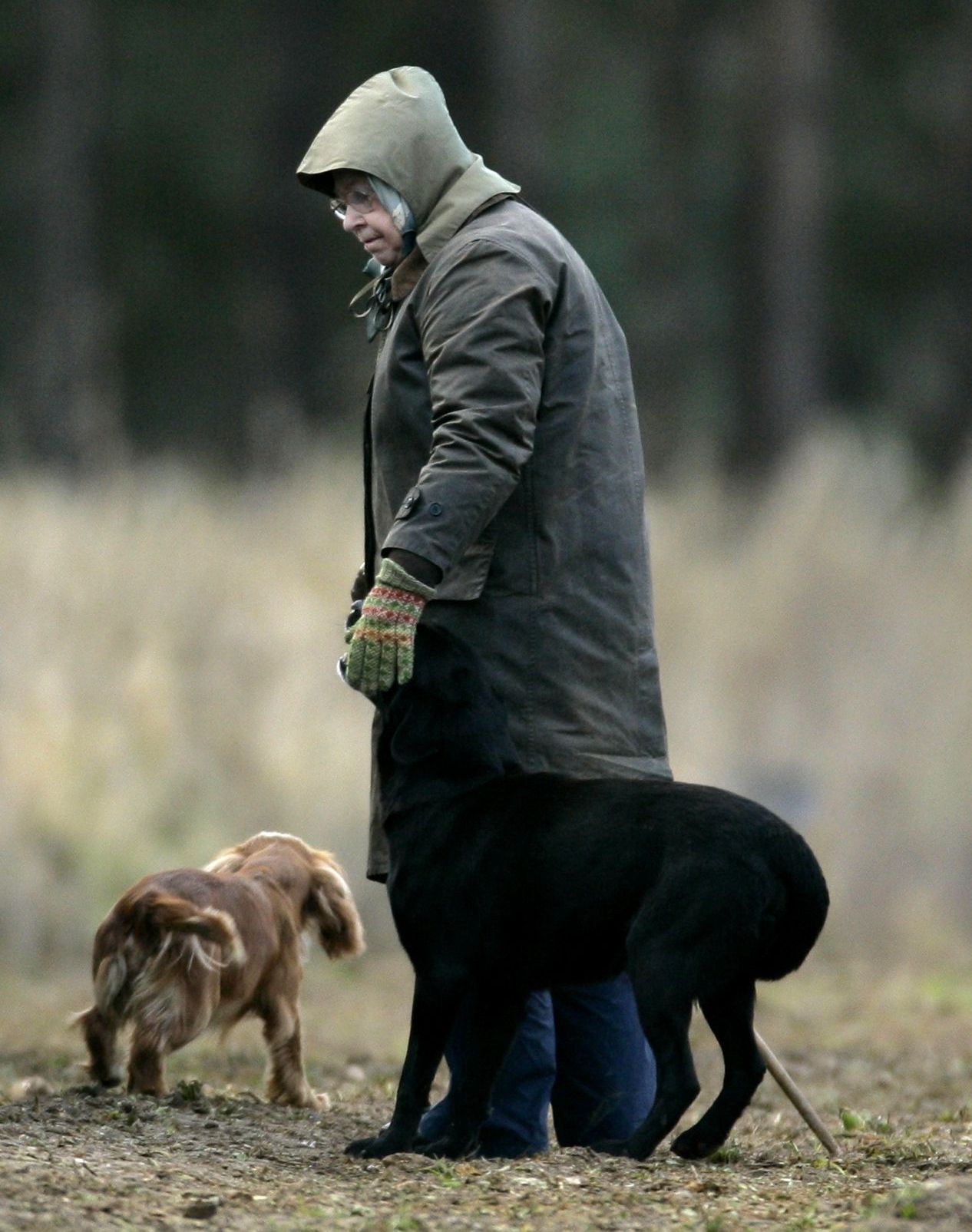
On a pheasant shoot, 2009
SHUTTERSTOCK
Secrets of Balmoral — including the Queen doing the washing-up
If Margaret Thatcher hated going to Balmoral, John Major relished it. “The one thing I didn’t enjoy was a piper going around the house at some ungodly hour of the morning. And some of the bathrooms were antique. But it was always fun. It was very informal. I’d look out the window and it would be pouring with rain — and the Queen would be out there with the dogs in her mackintosh and a headscarf, exactly as any other dog lover would be. In the evening we’d have barbecues, usually cooked by Prince Philip. There were no formalities. The normal courtesies were observed, but it was always relaxed and fun. Humour was always on the menu,” says Major.
Occasionally, the piper would be even more inconvenient than usual. One Sunday morning before church, Major had to take a phone call from the Italian prime minister, Giuliano Amato. “As we spoke, a piper was walking up and down the lawn outside the bedroom playing a lament. At one point I could only hear Giuliano by putting a finger to one ear while holding the phone to the other.” On the other end of the line, Amato was saying, “What’s that noise?”
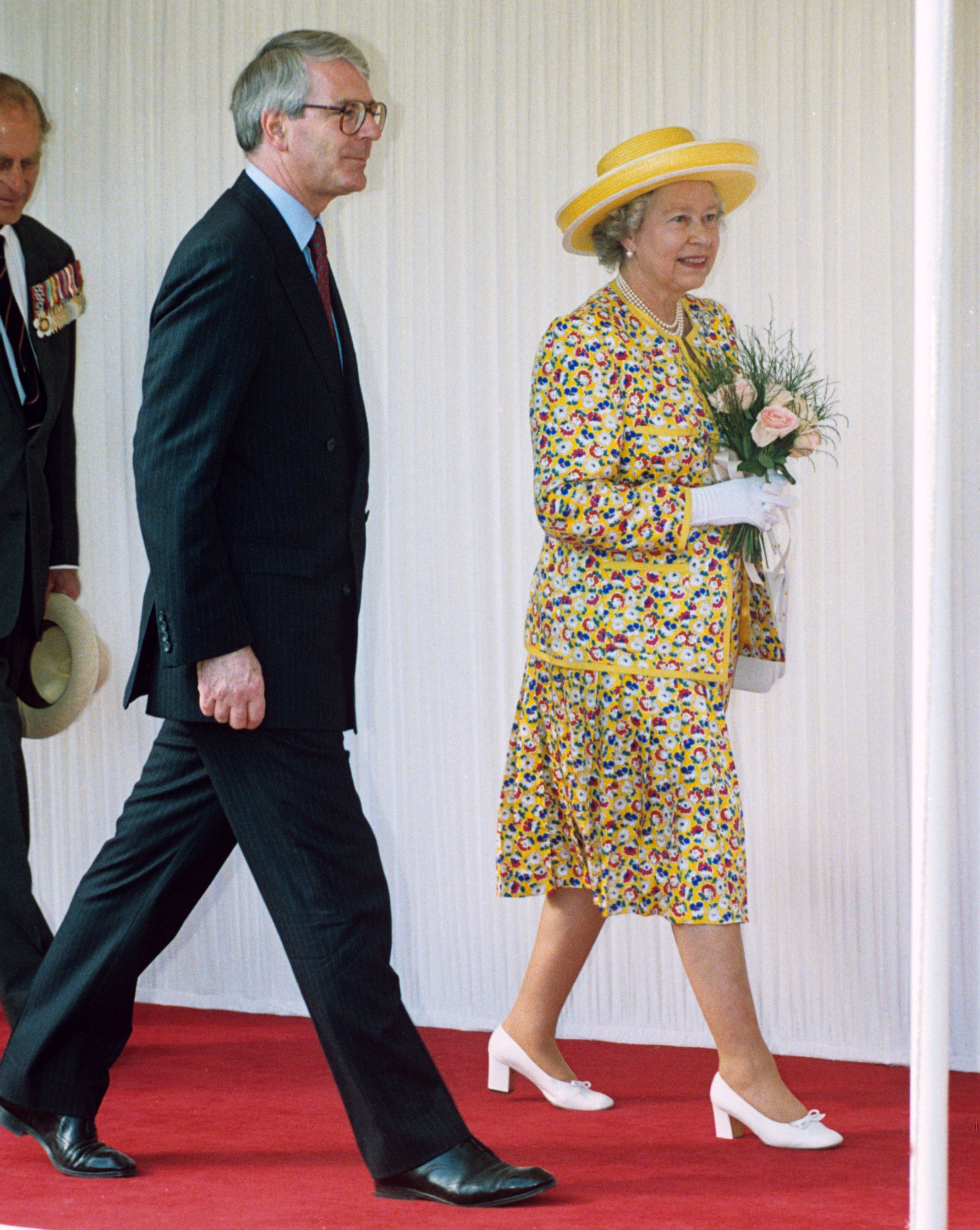
With John Major, 1995
SHUTTERSTOCK
For all that Major remembers Balmoral being relaxed and fun, informality is perhaps a relative concept. Alex Allan, Major’s private secretary, says, “One of my memories is the sheer number of changes of clothes you had to take. You leave London in a business suit, and then you arrive and have lunch with Robert Fellowes [the Queen’s private secretary], and that was trying to change into something slightly less formal. Then Robert and Jane [his wife] and I would go for a walk, and you would have to have suitable gear for walking. Then you never knew until six o’clock in the evening whether you’d be having a black tie dinner in the castle or a barbecue at one of the lodges around the grounds. Then you’d go to church the next morning.
“So you ended up with a huge suitcase of clothes for a weekend. The barbecues were much more fun than the black tie dinners. You’d arrive there and the Duke of Edinburgh and Prince Andrew would be cooking the sausages. At the end of the meal the Queen would get up and start doing the washing-up.”
This was a phenomenon noted by every visitor to Balmoral, although there was possibly more to it than met the eye. “One time I was standing up to go and help her. I was sitting next to a lady-in-waiting, and she said, ‘No, no, no! The Queen likes to do it. But don’t worry — when the plates and everything get back to the castle, they are all put in the dishwasher.’ ”
The Queen told Barack Obama when it was time to go to bed
George Osborne attended the Buckingham Palace banquet for the state visit by US president Barack Obama in 2011. Towards the end of the evening, with everyone still enjoying themselves after dinner, the Queen came up to him and said, “Will you tell President Obama it’s time to go to bed?” Osborne recalls, “I could see Obama surrounded by this big crowd. Am I supposed to go and tell him to go to bed? It was about midnight. And the Queen’s private secretary, Christopher Geidt, stepped in and said, ‘We are handling the situation, Chancellor.’ ”
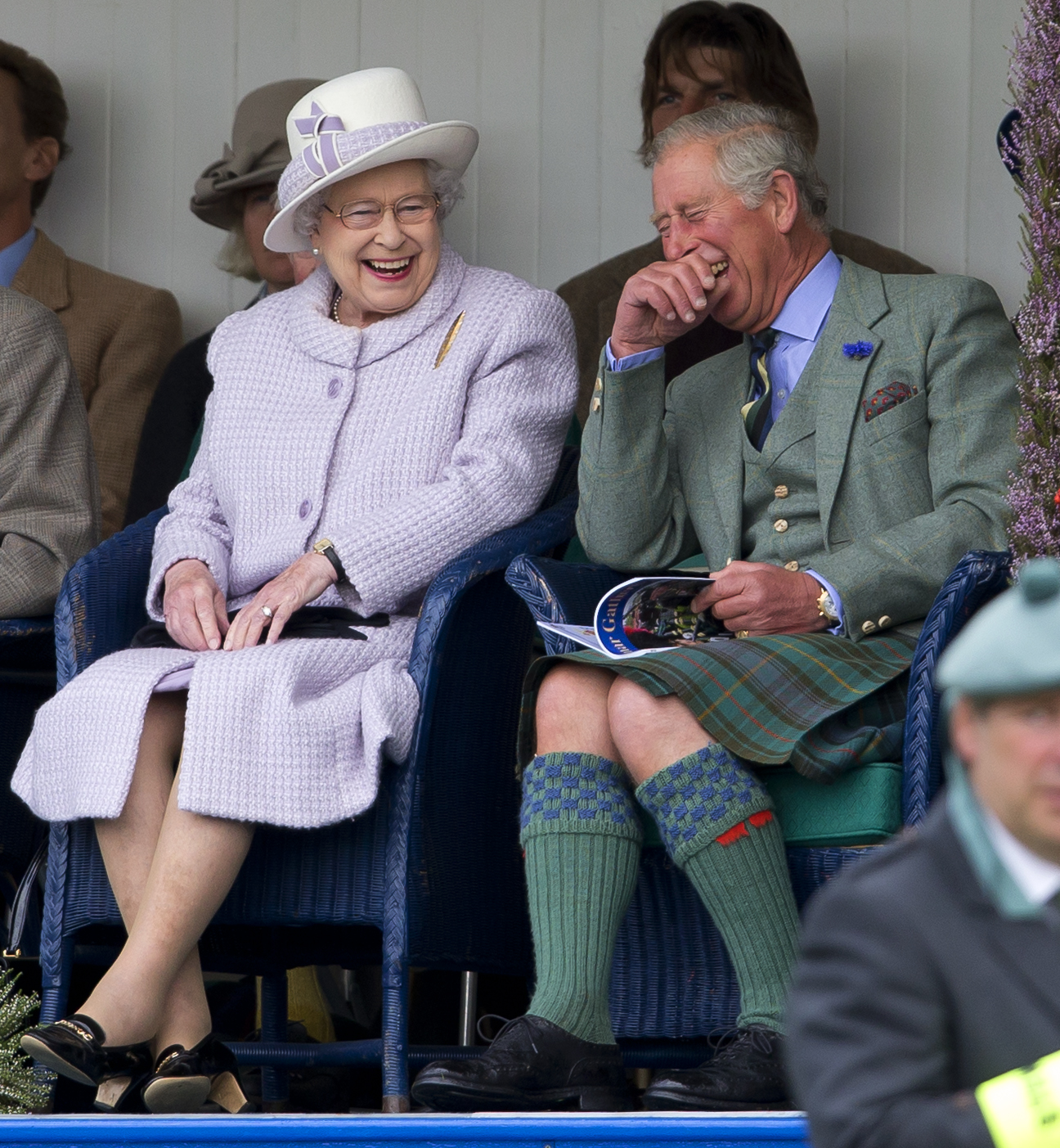
With Prince Charles at the Braemar Highland Gathering, 2012
GETTY IMAGES
Why Charles was in the doghouse with the cabinet secretary
A few days before Christmas 2012, Richard Heaton, permanent secretary at the Cabinet Office, had an unexpected invitation to have tea with the Prince of Wales at Clarence House, ostensibly to discuss the relationship between the government and the prince’s charities. Joined by their respective private secretaries in the upstairs drawing room, they talked about various subjects including India and the Freedom of Information Act.
According to Whitehall sources, towards the end the conversation shifted to the Succession to the Crown Bill, which gave daughters equal rights in the line of succession, and which was at the time making its way through parliament. The proposed new law was very timely, because the Duchess of Cambridge was pregnant with her first child, who would turn out to be a boy, Prince George. What, Charles wanted to know, would happen if his first grandchild were a girl, and she married a Mr Smith? Would the royal house be Smith or Windsor? He had other questions too — about what would happen if his grandchild married a Catholic and what effect the new law would have on hereditary peerages. It was not Heaton’s area of responsibility, and he had not been briefed on the subject, but he gave what answers he could.
During all the discussions about the change in the rules of succession Buckingham Palace had one stipulation: they told Whitehall politely but firmly that government officials should just deal with Buckingham Palace on this one. There was absolutely no need, in other words, to bring the Prince of Wales’s people at Clarence House into the discussion.
That, then, may explain why the Prince of Wales ambushed Heaton with questions about the Succession to the Crown Bill. It may also explain why, a couple of weeks later, a story appeared on the front page of the Daily Mail saying that the prince had “voiced serious concerns” about “rushed plans” to change the laws governing the royal line of succession. Charles backed the law in principle,the article said, but thought that the consequences for the relationship between the state and the Church of England, and the rules governing hereditary titles, had not been thought through.
Significantly, Simon Heffer wrote in the paper that Charles was concerned about “the lack of detailed consultation on the process”. He and Prince William, said Heffer, “appear not to have been consulted at all, which rankled with the Prince of Wales”. And why was that? Because thatis the way Buckingham Palace wanted it.
As soon as the article appeared, Heaton was contacted on holiday by the cabinet secretary Jeremy Heywood’s office, asking what had happened. By the time he got back, according to Whitehall sources, Heywood was sounding more relaxed about the whole episode. What was all this about the Prince of Wales, Heaton asked. “Oh, don’t worry about that,” said Heywood. “He’s in the doghouse.”
There were three reasons why Whitehall saw it that way. One was that the prince had, in their view, misrepresented the conversation between him and Heaton. Second, he had leaked — or someone had leaked on his behalf — a private conversation with a civil servant. And third, he was criticising government policy, which he was not supposed to do. The bill had been carefully brokered with Buckingham Palace and sources say he had no business “to haul someone in and give them a dressing-down on something which was settled government policy”.
A short while later, Charles invited Heaton to join him on a visit to a pottery that one of the prince’s charities had helped to save. Charles showed him around, and the two men chatted on the royal train. It wasn’t an apology, but it was the next best thing.
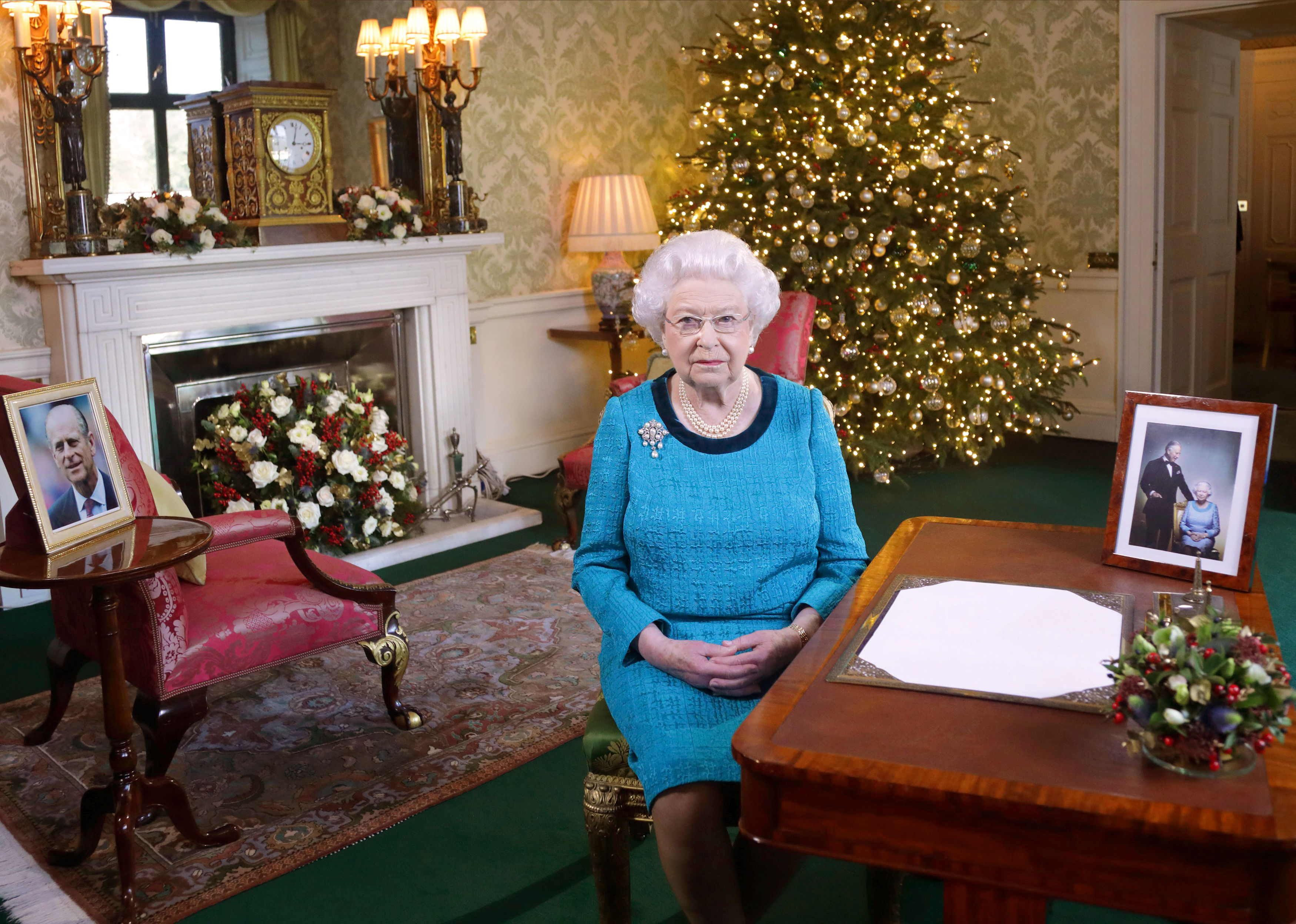
Recording her Christmas Day broadcast to the Commonwealth, 2016
PA
The Palace took ‘Take back control’ out of the post-Brexit Queen’s Speech
Getting the language of the Queen’s Speech right is an art. Occasionally, the Palace would request a tweak to make the speech easier to deliver. When Boris Johnson was prime minister, there were a couple of occasions when the Palace felt the language wasn’t right. A Whitehall source says, ‘The tension comes in the drafting of the speech. If there are phrases in there that look too overtly political, there’s always an eyebrow raised at the other end of St James’s Park, which means, ‘No, I don’t think we can use this phrase or that phrase, because it’s come directly from political campaigning.’ ” A phrase on the Rwanda bill had to be taken out, as did another on Brexit, which was all about “taking back control”.
In contrast to that, one of the only times that the late Queen expressed an opinion — in private — about the speech was to praise an initiative of Boris Johnson’s. On a visit to Sandringham, Sir Malcolm Rifkind asked the Queen how she was getting on with Johnson as prime minister. She replied, “I’m finding him a rather interesting person.” She was, she said, “particularly pleased” that the Queen’s Speech she delivered in May 2021 included a reference in the last paragraph to the government’s commitment to the “global effort to get 40 million girls across the world into school”.
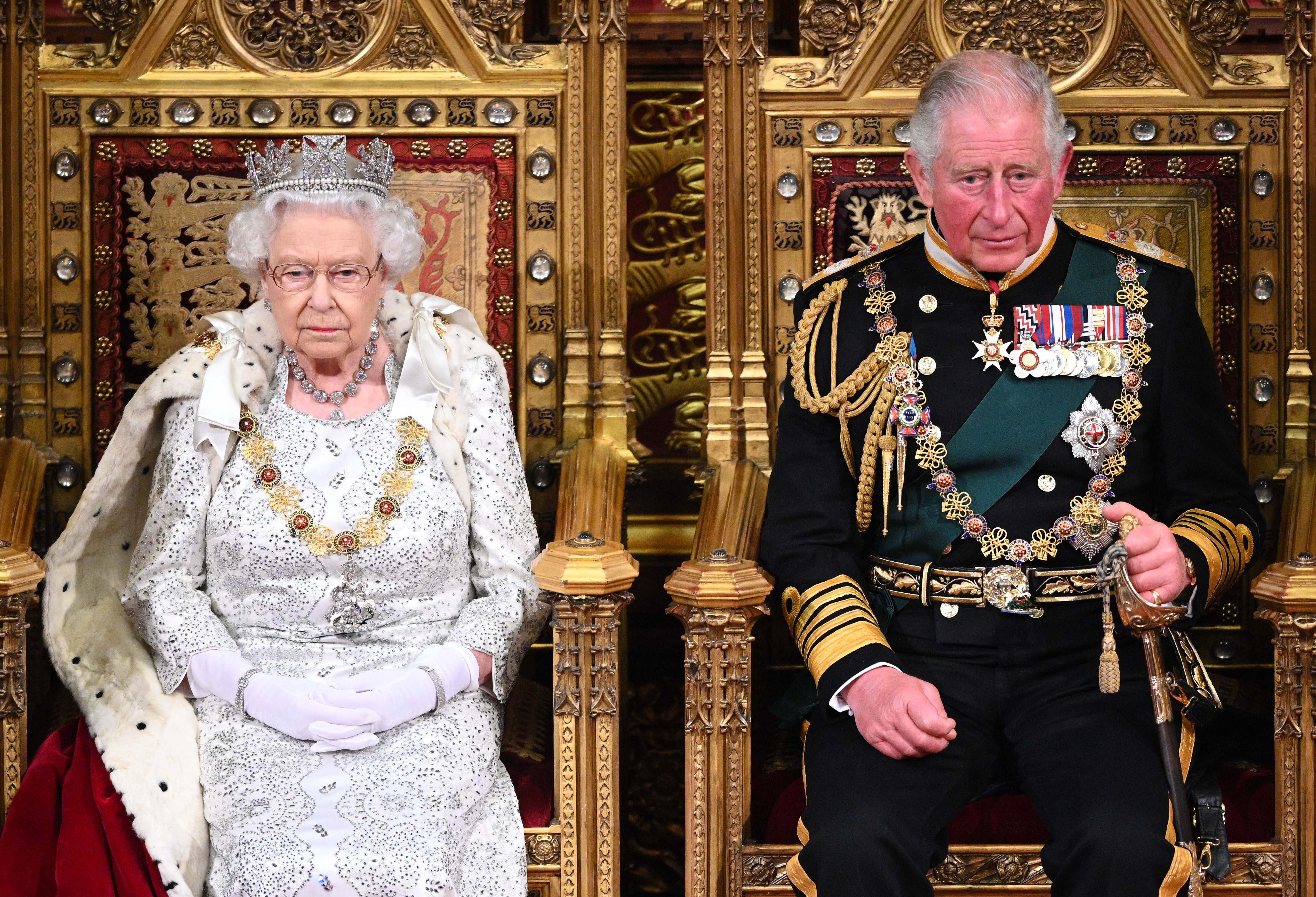
Queen Elizabeth II and Prince Charles during the State Opening of Parliament, 2019
GETTY IMAGES
What the Queen thought about Charles’s political interfering
Charles was prepared to press for meetings with ministers if there was an issue that was concerning him. In the Nineties his behaviour was causing concern within Buckingham Palace. One of his former aides recalls, “They would sometimes get exercised about the prince getting a bit ahead of his skis, becoming a bit more engaged in some of these sensitive issues than the Queen thought was necessarily wise.” The aide adds, “He was about the only person in the royal family who really cared about climate change. He was 30 years ahead of public opinion.” Other members of the royal family, including the Princess Royal and Prince Andrew, thought that his enthusiasm for such issues bordered on the naive. “There was a natural and understandable concern that the relationship with the government should not be jeopardised by him becoming a little too outspoken on the issues that he cared about.”
A Palace source says the Queen’s view of Charles writing letters to ministers was, “Just don’t do it. As soon as you engage in politics, you have an opinion and you pick a side — you cause a part of the population who disagree to take a partial view of you. The view of those who want to protect the monarchy was that it had to be even more elevated from the politics. Anything that dragged her into the mud was an unhelpful development.”
After Labour came to power in 1997, “Prince Charles engaged on issues in a quite political way. But I don’t mean party political,” recalls a minister. “He had pronounced views on a range of things, and he was keen for his views to prevail.”
In June 1999 Charles wrote an impassioned article about genetically modified (GM) produce, which had been dubbed “Frankenstein food”. Tony Blair, whose government was trying to allay public fears about GM crops, was “very pissed off”, according to Alastair Campbell, but refrained from reacting.
At which point, enter Peter Mandelson. He had met Charles a number of times, and had got to know him better three weeks before Diana’s death when he had been invited to Highgrove to have lunch with Charles and Camilla. At the lunch Charles unburdened himself to Mandelson about the media pressure he was experiencing after his divorce from Diana. Mandelson spoke frankly, saying he commanded more affection than he realised, but also told Charles that he gave the impression he felt sorry for himself.
Mandelson was worried that he had gone too far, but Charles appreciated his frankness and would then often turn to him for advice. Charles would also write to him about “areas of public policy that he believed to be misguided” and Mandelson would pass on his views to Blair.
Mandelson was, therefore, the ideal informal channel of communication for Blair to let Prince Charles know that he had pushed it too far with his article on GM food. Mandelson writes in his memoirs, “I was on a visit to New York when No 10 phoned to ask me to urge caution on him, and I spoke to Charles from a traffic jam in the middle of Manhattan. Like Tony, I felt that his remarks were becoming unhelpful. I thought they were anti-scientific and irresponsible in the light of food shortages in the developing world. I am sure Charles did not change his mind as a result of our conversation, but he did tone down his public interventions on the subject.”
The constitutional significance of this conversation has largely been overlooked. Repeatedly accused over the years of being a meddling prince, Charles has said that there was a difference between what he could do as Prince of Wales and what he could do as King. In a documentary to mark his 70th birthday, when asked if his public campaigning would continue after he ascended the throne, he replied, “No, it won’t. I’m not that stupid. I do realise that it is a separate exercise being sovereign. So, of course, I understand entirely how that should operate.”
As one of his former advisers says, a lot of the way he shaped the job “was on instinct — nothing is written down. He was able, as all heirs to the throne have been, to craft a role as he sees fit. You avoid particular policy issues that are party political. But he instinctively felt that he should take up issues that were of broader national and global concern.” A more crude interpretation might be that Charles would push things as far as he could and see if he got away with it. Mandelson’s call from New York represented the first time that the government had pushed back and told him that he had gone too far.
Power and the Palace: the Inside Story of the Monarchy and 10 Downing Street by Valentine Low (Headline Press, £25) is published on September 11. To order a copy go to timesbookshop.co.uk or call 020 3176 2935. Free UK standard P&P on online orders over £25. Special discount available for Times+ members
